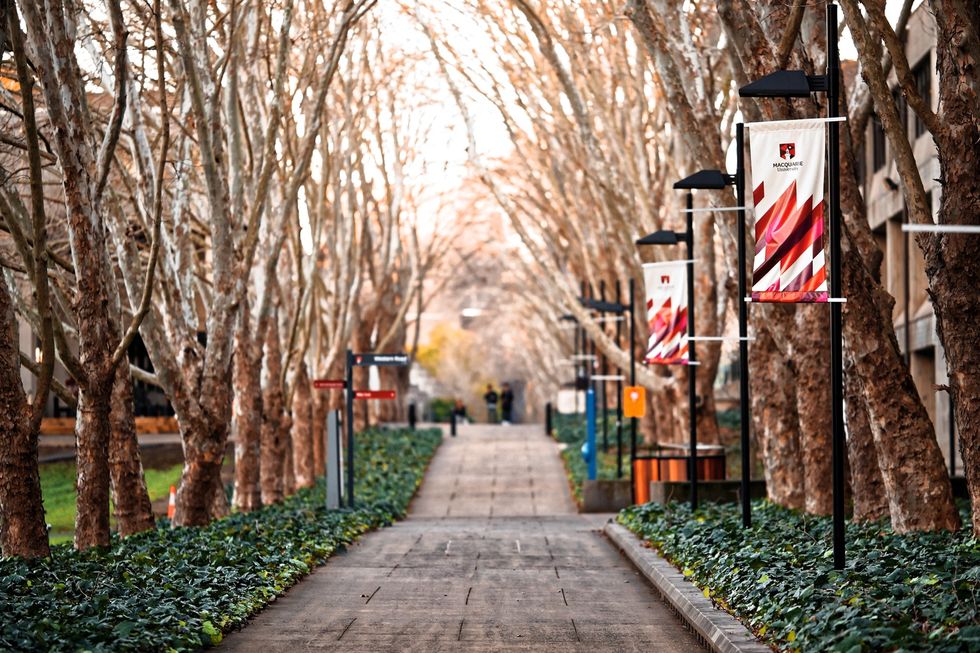According to a survey titled "Addiction" conducted by AccessU which was answered by more than 700 University of Minnesota - Twin Cities undergraduate students, students listed recovery housing as one option the university should provide for students.
“I think a university-sponsored group for people trying to find living with other students trying to stay sober might be useful,” one survey respondent wrote. The questionnaire did not ask students to identify themselves.
But at the University of Minnesota, the only option is a Substance Free floor in Middlebrook residence hall. Technically, all dorms are substance free, but in this dorm, students are expected to completely abstain from drug and alcohol use.
“I think it's important to have the LLC to have place where there isn't pressure to have to do substances to have fun,” Maria Sottile, a community advisor in the substance-free LLC, said in an email, “especially in the culture we have in college where people feel the need to drink to have fun.”
Sottile said she chooses to abstain from substance use because she wants to focus on her career and most of her residents choose to live in substance-free housing because they want to live a healthier lifestyle that doesn’t involve drugs or alcohol.
Feist agrees that abstinence may not be enough for students who require more of a community to help them with their addiction.
“I realized that students in recovery are in a very different place and a very different journey than students that have always chosen to abstain from substance," Feist said.
Feist said it may be hard for students who have always chosen to renounce drug use to understand the trials and tribulations that students in recovery are faced with. Empathizing with different life experiences drive certain decisions that people make.
“It just feels very different when you’ve never used a substance versus ‘I’ve used a substance and it wasn’t healthy for me, and I’ve chosen not to anymore,'” Feist said.
Feist said she is unsure what Boynton or Housing and Residential Life could have done differently to market the recovery housing option to students better. LLCs are marketed on Housing’s website and are also a section on the application that all students applying for residency for the next year can see.
“We also work with Admissions to make sure their staff is aware of the options for when they meet with prospective students,” Feist said in an email.
Other schools with successful recovery dorms do far more than mere listing on the housing application, however. At Augsburg, the Step-UP program built a reputation in Minnesota which allowed them to make connections at treatment centers, sober houses, and halfway houses, but they still use promoting the program on all fronts to get the word out.
“We have stories in the student newspaper, we make flyers and posters,” Salmeri said. “There’s a student group which includes general population students and Step-Up students. They hold events and activities.”
Salmeri suggests the university should use September, which is recovery month, as a way to get the word out about resources, “They could have events, have talks with students about what recovery is. They could even partner with Augsburg. We could have cookouts.”
With no housing in the works, a potential option for the U could be searching for funding through private donations.
“We’ve never perused the private funding, it’s out of our skill set, but It needs to be looked at,” Golden said.
What sober housing at the university may well need is an advocate outside the university. Nassise Geleta, a second-year student and advocate behind the Charlotte’s Home for Black Women Living Learning Community, says strong leadership is usually the driving force behind the creation of any LLC. When she formed her own community, for example, Geleta says she had to reach out to multiple departments to get them to fund and advise the living learning community.
“In the beginning, it was just a lot of asking questions with faculty, staff, and student groups. Just whoever was willing to talk about the issue,” Gelelta said. “I would talk to people in the Huntley House living learning community. See what their experience has been, what their viewpoints were.”
After finding a department to collaborate with, her focus turned to figuring out what the best way would be to show the university the LLC was necessary. She reached out to Black Motivated Women, a student group, to use their sign-in sheets as a way see if students wanted the LLC.
“So then there’s evidence like ‘look! There’s that many people who want to see it happen!’” Geleta said. In offering advice to students looking to start their own community, she stated, “I would reach out to student groups, by talking to as many people as you can you can gauge where their interest level is.”






















